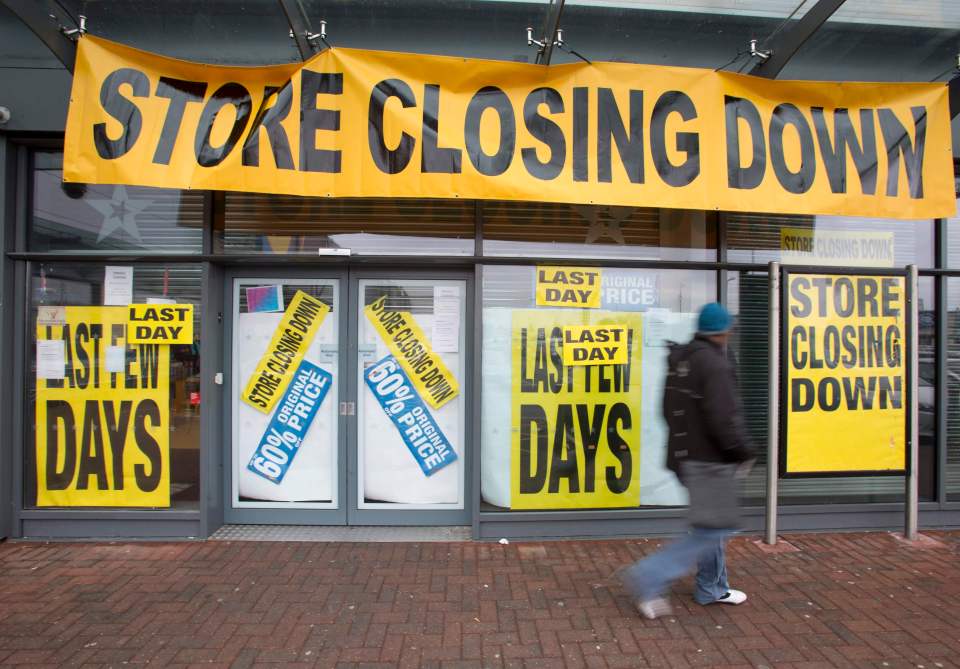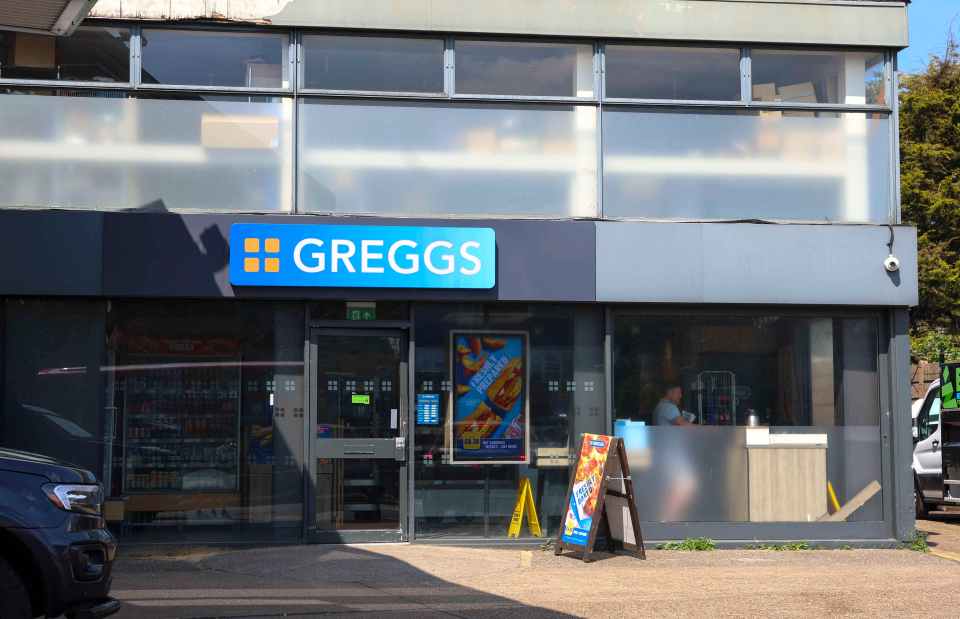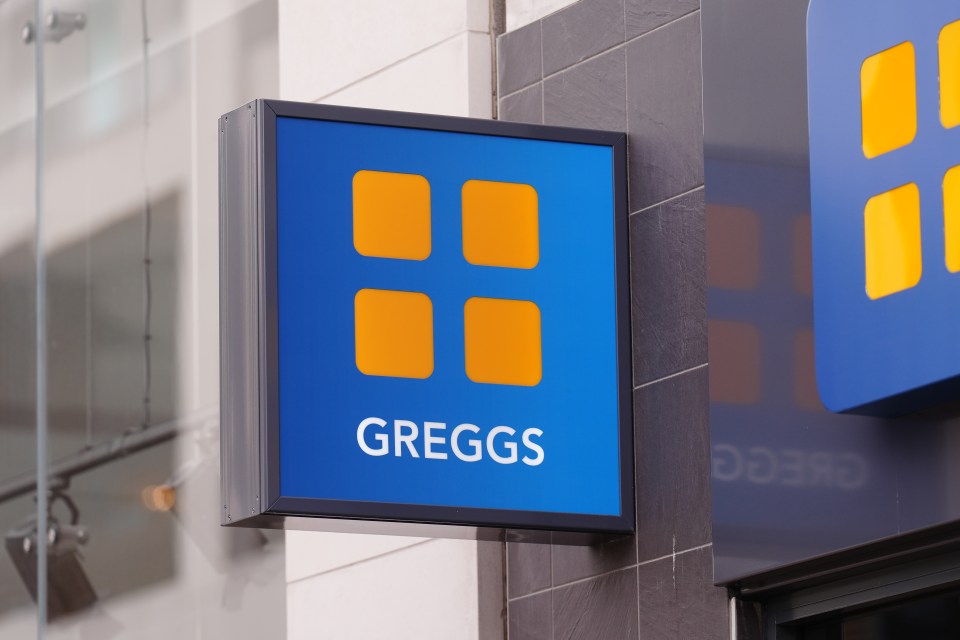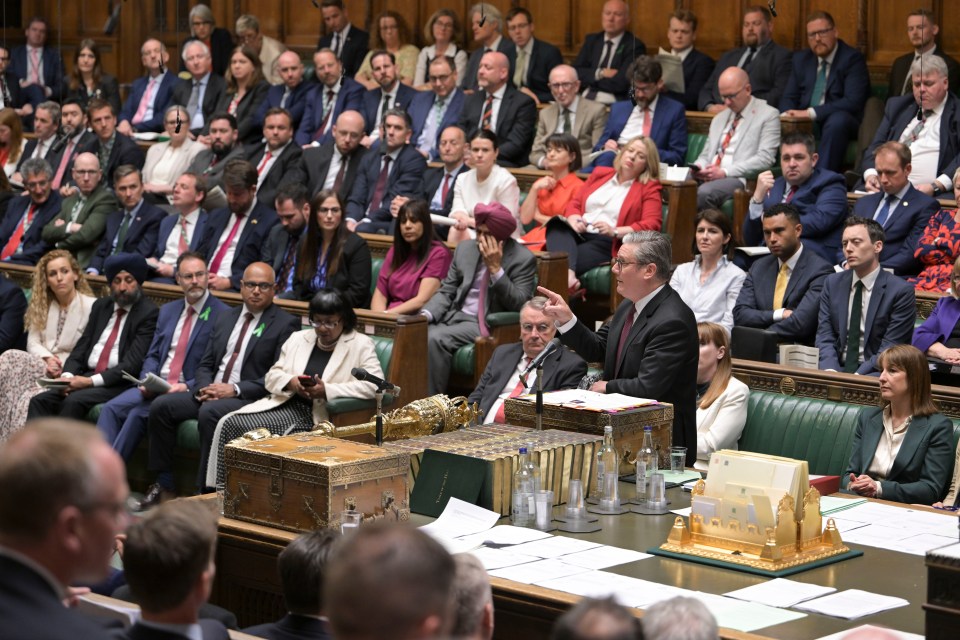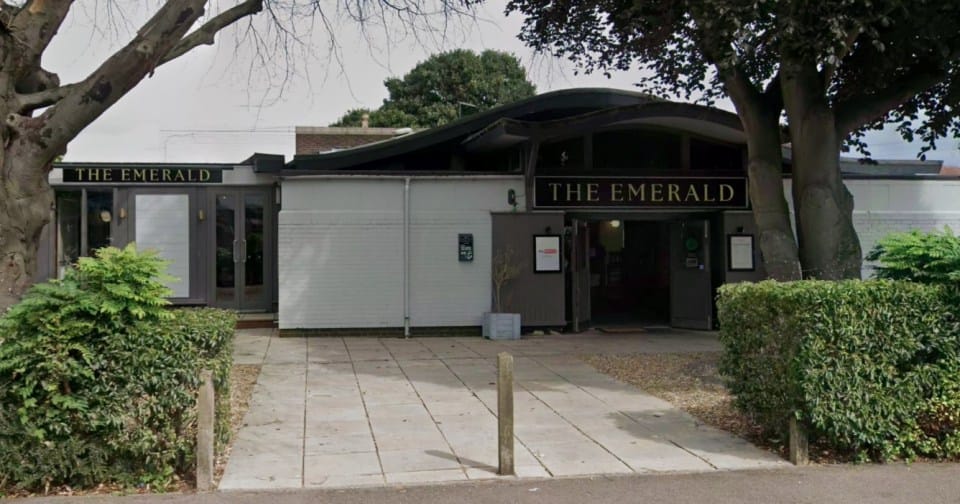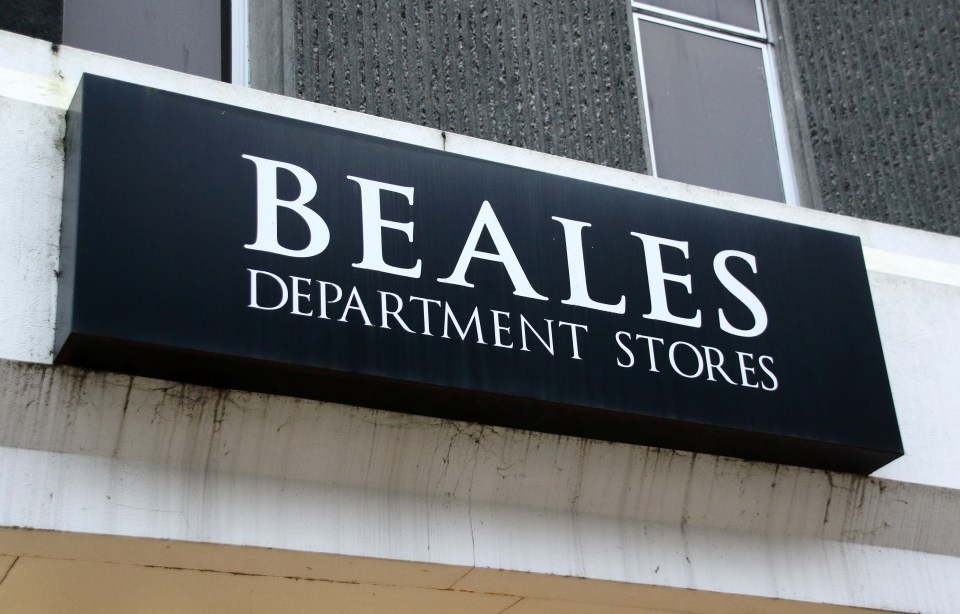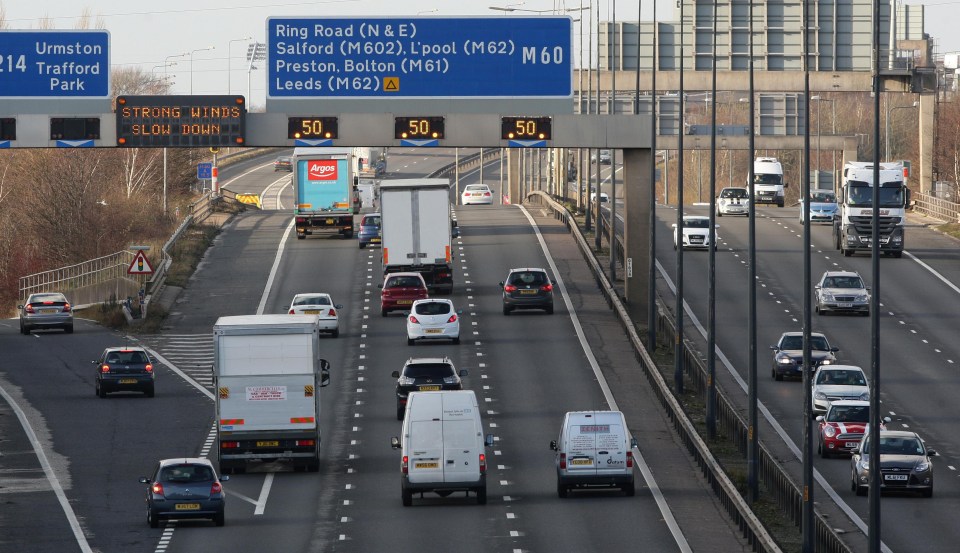TENS of thousands of fed-up energy customers have lodged official complaints – and have been handed compensation
Fresh figures from the Energy Ombudsman reveal that British Gas came out worst out of all energy companies in the UK.
The firm received 48 complaints per 100,000 domestic customers between October and December 2024 – the worst rate in the country.
With an estimated 7.5 million UK households on its books, that’s around 3,600 complaints officially accepted by the Ombudsman in just three months.
The stats reveal how many cases were accepted per 100,000 customers – giving a clearer picture of which firms are falling short.
Here’s how the rest stack up:
- Scottish Power – 27.8 complaints per 100K (approx. 1,390 cases, based on 5 million customers)
- EDF Energy – 26.6 per 100K (1,463 cases, 5.5 million customers)
- OVO Energy – 26.4 per 100K (1,056 cases, 4 million customers)
- Octopus Energy – 22.5 per 100K (1,643 cases, 7.3 million customers)
- E.ON Next – 21.2 per 100K (1,060 cases, 5 million customers)
- Utility Warehouse – 18.7 per 100K (187 cases, 1 million customers)
- Utilita – 11.1 per 100K (approx. 89 cases, 800,000 customers)
Utilita and Utility Warehouse were the best of the bunch, with the lowest complaint rates – while Octopus Energy continued its strong customer service record with a below-average rate.
These figures show how many complaints were accepted by the ombudsman after customers failed to get a resolution directly from their supplier.
All energy firms have been contacted for comment.
OVERALL COMPLAINTS FALL – BUT THOUSANDS STILL STRUGGLING
Across the board, the number of energy disputes accepted by the Energy Ombudsman fell by 24% in 2024, down to 92,938 cases from 122,829 the year before.
That’s a positive step – but complaints are still a third higher than in 2021, showing many customers are still getting a raw deal.
From TV to energy… tips to save you money on 7 bills that are going up in April
The most common problem? Billing issues, which made up 58% of all cases.
Top gripes included:
- Disputed gas or electricity usage
- Incorrect account balances
- Back-billing – with over 3,200 cases involving bills for energy used months or even years ago
CAN YOU CLAIM COMPENSATION?
If your energy firm hasn’t resolved your issue after eight weeks, or you’ve hit deadlock, you can raise it with the Energy Ombudsman – for free.
They can order suppliers to:
- Refund money
- Issue a written apology
- Pay compensation
HOW MUCH COULD YOU SAVE IF YOU SWITCH TO A FIXED TARIFF?
Will Owen, energy expert at Uswitch.com, told The Sun: “Energy prices are predicted to fall in the coming months with the new price cap, but there are bigger savings to be made by switching to a fixed tariff now.
“The average household on a standard variable tariff could currently save around £332 versus the April price cap by switching to a fixed deal.
“Energy prices continue to be volatile, with cost-of-living pressures still squeezing households despite falling inflation rates.
“It only takes a few minutes to run a comparison and you may be surprised at how much you can save, compared to lingering on standard variable rates with your current supplier.”
Four ways to keep your energy bills low
Laura Court-Jones, Small Business Editor at Bionic shared her tips.
1. Turn your heating down by one degree
You probably won’t even notice this tiny temperature difference, but what you will notice is a saving on your energy bills as a result. Just taking your thermostat down a notch is a quick way to start saving fast. This one small action only takes seconds to carry out and could potentially slash your heating bills by £171.70.
2. Switch appliances and lights off
It sounds simple, but fully turning off appliances and lights that are not in use can reduce your energy bills, especially in winter. Turning off lights and appliances when they are not in use, can save you up to £20 a year on your energy bills
3. Install a smart meter
Smart meters are a great way to keep control over your energy use, largely because they allow you to see where and when your gas and electricity is being used.
4. Consider switching energy supplier
No matter how happy you are with your current energy supplier, they may not be providing you with the best deals, especially if you’ve let a fixed-rate contract expire without arranging a new one. If you haven’t browsed any alternative tariffs lately, then you may not be aware that there are better options out there.
MISSING OUT?
Shockingly, just 43% of customers are being properly signposted to the Ombudsman when they’re eligible – meaning thousands could be missing out on compensation.
Ed Dodman, chief ombudsman at Energy Ombudsman, said: “Our role is not just to fix problems – it’s to make the whole energy sector fairer and more transparent.
“While the fall in complaints is welcome, there’s still work to do. Every customer deserves to know their rights – and how to get the help they need.”
HOW TO COMPLAIN & GET WHAT YOU’RE OWED
- Raise your issue directly with your energy supplier
- If it’s unresolved after eight weeks, or you’ve reached deadlock, go to www.energyombudsman.org
- You could get a refund, apology, or compensation – at no cost
TOP REASONS FOR COMPLAINTS
- Disputed meter readings
- Wrong balances
- Backdated bills
- Faulty smart meters
- Rubbish customer service
If your provider is one of the worst offenders, it might be time to make a switch and save – especially if you’ve been overcharged or ignored.
OTHER ENERGY FIRM FAILINGS
Ofgem has collected more than £400million in payments since 2020 through its compliance and enforcement activities, with the money used to help struggling households with their bills.
Back in September, OVO Energy was forced to pay out £378,512 to 1,395 customers over the historic failings.
Impacted customers received around £271 on average.
Ofgem found OVO took too long to address the almost 1,400 customer complaints, in some cases taking up to 18 months.
It also delayed actioning Energy Ombudsman decisions when complaints were upheld, Ofgem said at the time.
E.ON Next was also ordered by Ofgem last June to pay £5million to customers who suffered poor customer service.
The regulator said a review of the firm’s customer service standards and complaints-handling across the sector uncovered “severe weaknesses”, with customers facing long call waiting times and a high level of unanswered calls.
More than 500,000 customers were potentially affected, according to Ofgem.
The month before, Ofgem ordered Good Energy and OVO to pay out £2.7million to thousands of customers who were overcharged.
HOW DO I COMPLAIN ABOUT MY ENERGY SUPPLIER?
Similar to financial services firms, energy companies have to have a complaints procedure for customers to follow.
When you make a complaint, make sure you follow this so they have the information they need to resolve the issue.
Simply explain what the problem is and what you want your supplier to do about it.
Check your energy supplier’s website for an explanation of how to launch a complaint.
Energy suppliers have eight weeks to respond and come to a decision.
If it doesn’t or you’re not happy with the response, you can take the firm to the Energy Ombudsman.
The Energy Ombudsman may be able to help if you have a complaint about an energy or communications provider.
Before you can submit your complaint to it, you must have logged a formal complaint with your provider and worked with the firm to resolve it.
You must also have received a so-called deadlock letter, where the provider refers your complaint to the Energy Ombudsman.
You can also complain if you haven’t had a satisfactory solution to your problem within eight weeks.
The Energy Ombudsman then bases its decision on the evidence you and the company submit.
If you choose to accept its decision, your supplier then has 28 days to comply.
The Ombudsman’s decisions are binding on the energy company.
If your supplier refuses to follow the instruction, the Ombudsman may get in touch with Ofgem to remedy the situation – but there’s no set period for escalating issues to the regulator and it’s not up to the customer.
If an individual chooses not to accept the Ombudsman’s final decision, they lose the right to the resolution offer.
Customers still have the right to take their complaint further through the courts.
But remember this can be a costly and lengthy exercise, so it’s worth thinking carefully before taking this step.
What energy bill help is available?
THERE’S a number of different ways to get help paying your energy bills if you’re struggling to get by.
If you fall into debt, you can always approach your supplier to see if they can put you on a repayment plan before putting you on a prepayment meter.
This involves paying off what you owe in instalments over a set period.
If your supplier offers you a repayment plan you don’t think you can afford, speak to them again to see if you can negotiate a better deal.
Several energy firms have grant schemes available to customers struggling to cover their bills.
But eligibility criteria varies depending on the supplier and the amount you can get depends on your financial circumstances.
For example, British Gas or Scottish Gas customers struggling to pay their energy bills can get grants worth up to £2,000.
British Gas also offers help via its British Gas Energy Trust and Individuals Family Fund.
You don’t need to be a British Gas customer to apply for the second fund.
EDF, E.ON, Octopus Energy and Scottish Power all offer grants to struggling customers too.
Thousands of vulnerable households are missing out on extra help and protections by not signing up to the Priority Services Register (PSR).
The service helps support vulnerable households, such as those who are elderly or ill, and some of the perks include being given advance warning of blackouts, free gas safety checks and extra support if you’re struggling.
Get in touch with your energy firm to see if you can apply.



